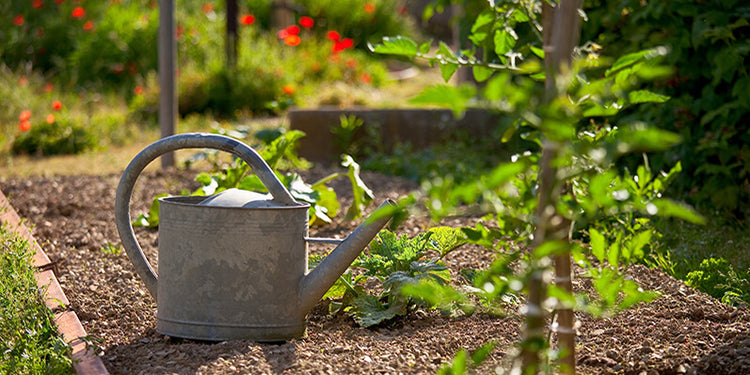Gardening is one of those hobbies that once you start you never want to stop. It’s rewarding to grow fruits and vegetables and then serve them for dinner later on that evening. But we all know it can be intimidating to start something new. If you’ve never created your own garden before, this blog is for you. We’re here to help and cheer you on!
Getting Started
To get started you must first decide where you will plant your garden. Go out into your backyard and find the sun, watch for a few days and see which part of your yard gets the most sunlight. Most plants need between six to eight hours of sunlight each day to thrive. Now if your yard is small or if you live in a city, you can still start a garden. You’ll want to determine the best spot to place your plants… on a balcony, front walkway, or even in a fish tank. There are many different ways to start an urban garden. But it’s important to pay attention to the sun, you want your plants to get adequate light to grow. Pro Tip: Make sure your garden hose can reach your garden site.
When to Start Planting
You can start planting your garden as soon as the soil is workable. You’ll notice in some parts of the country where cold lingers, it may be April until you can start this process. But in warmer regions, that could be as soon as late February or March. You do not want the dirt to be frozen. Even if temperatures drop below freezing, the soil should crumble with a gentle touch. If you’re creating an urban garden using containers or pots, place them on concrete, a driveway, or against a brick wall. This will help them gather more heat.
Prep Your Soil, Seeds & Bulbs
Before you place any seeds or bulbs into the ground you want to make sure your soil is prepped. Having healthy soil is where it all begins. Start by using compost in your garden. Mix an equal amount of food scraps and yard waste. This will ensure you have a good balance in your compost. Then, use Ultra® to support the beneficial microbial life in the soil and plant. Ultra® is a 100% organic, environmentally safe prebiotic that contains macro and micro-nutrients, vitamins, enzymes, amino acids, and complex carbohydrates that benefit both the soil and plant production and health. It is simple to use and can be applied to the soil, seed, roots, and plant foliage to maximize growth and production.

What Should You Plant?
If you’re starting your garden in late winter or early spring, start with salad greens.- Lettuce
- Arugula
- Mesclun mixes
- Spinach
These plants will sprout when the soil is around 55-degrees and many can be harvested within 30 to 60-days. Now, salad greens will not thrive during cold snaps but they won’t die unless the temperature falls below 28-degrees. Onions: They are another great option to plant in late winter or early spring. They are a hardy plant and can survive a hard frost. You can start with buying seeds and begin growing them indoors. Then transplant them to your garden once you see “little spikes” sticking out of the seeds. Carrots: While they can be planted when the ground is colder, carrots do prefer warmer temperatures. So we suggest waiting until at least the second month of spring and temperatures are warm during the day and cool at night. To plant, scatter seeds in rows. It’s important to remember, carrots will only grow as large as you give them the space to grow. So don’t put the seeds too close to each other. Tomatoes: This plant enjoys warmth. If you want to plant your own tomatoes from seeds, start them indoors within eight weeks of your final frost date. Then, transplant them outside into your garden.
Don’t Forget the Mulch
If you’re growing your garden in your backyard, you want to provide a barrier for your plants. Mulch is an excellent barrier for your plants. You can count on it to keep moisture inside the soil, overpower weeds, regulate soil temperature, and create a beautiful garden! To save money and help the planet, you can even make your own mulch.
Water & GRO
To see your garden thrive, you want to water regularly. Place the hose on top of the mulched garden and let the water seep about 2-inches into the ground. Then move it around your garden to ensure the water evenly gets to each plant. Use Super-Cal to create strong soil structure and plant health. Nothing can replace the role of calcium in your garden. It is vital for your plants to be able to develop and grow properly. Super-Cal is a proprietary blend of natural organic acids that work in the soil to break down tied-up calcium/lime deposits and convert them to an available form that plants can utilize. Now you have the insight you need to create a beautiful garden. Ready to get started? We believe in you! Shop the line now and GRO your garden!



